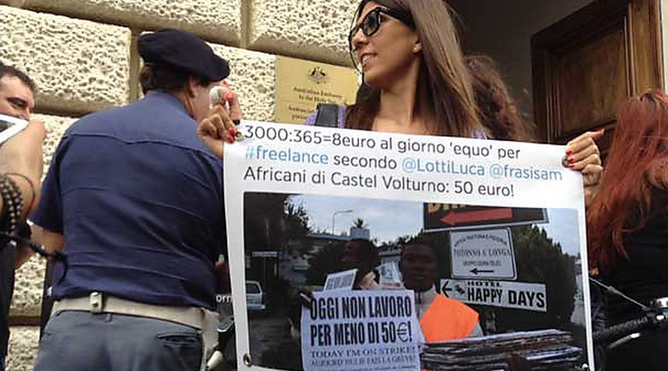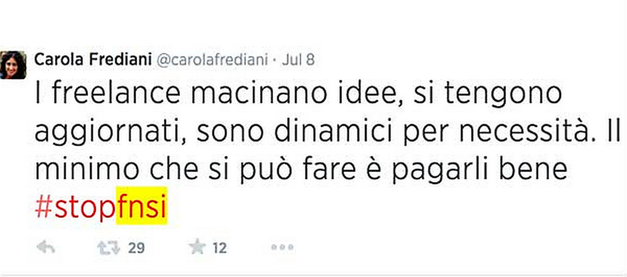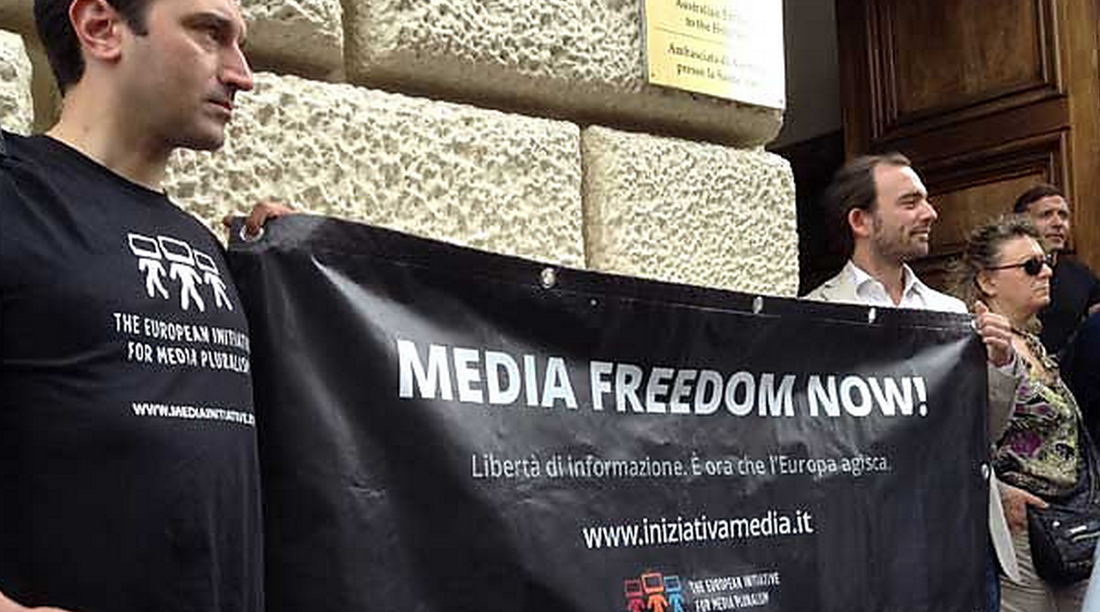 (by Alessia Cerantola for BBC College of Journalism) It took years to reach an agreement on how much freelance journalists in Italy should be paid. But the approved law, heralded as a milestone by the government and the national union of journalists (FNSI) - the only substantial organisation for journalists - disappointed freelancers and external contributors as well as the National Order of Journalists (ODG), the state-approved organisation which regulates Italian journalism. The discontent burst into flames with a street protest in Rome on 8 July, along with the launch of a Twitter attack under the hashtag #stopfnsi. In an online petition on Change.org, journalists asked for the withdrawal of the law and the resignation of the union's president. The organisation Youth Press Italia announced the cancellation of this year's Youth Media Days, a popular annual festival dedicated to young journalists in Naples. But without success. The new law called “fair salary” (equo compenso) establishes a minimum wage for radio, video, print and web journalists who are members of the ODG but work without regular contracts. It states, for example, that a minimum of 144 articles of at least 1,600 characters each, written during the course of one year for the same daily newspaper, should be paid a total gross amount of no less than 3,000 euros (250 per month, about 20 euros per piece). Photos and videos provided with the story might increase the amount by between 30% and 50%. A minimum of six stories for a single local radio and TV station would be valued at no less than 3,000 euros per year. If the minimum is not reached, the rate is not necessarily applied. Finally, it specifies that journalists have to cover all their own costs in relation to the reporting process.  Fai clic qui per effettuare modifiche. Tweet by Italian journalist Carola Frediani."Freelance journalists stack up ideas, keep themselves abreast, are fast-moving, of necessity. The minimum thing to do is paying them well." In a country where the annual income is nearly 29,000 euros, self-employed journalists, who according to a LSDI survey account for 60% of journalists in Italy, consider the rates outrageously low. Moreover, they are afraid that editors/publishers will interpret this not as a minimum rate but a suggested or fixed rate. “It has legalised the practice of low rates, as has already happened before,” said Massimo Romano, a 32-year-old journalist who has been working for seven years as a freelancer for a local TV station. Producing five stories per month, he now earns around 600 to 700 euros monthly. But he fears that the law could reduce his salary. Fai clic qui per effettuare modifiche.
0 Comments
Your comment will be posted after it is approved.
Leave a Reply. |
Archives
August 2023
|

 RSS Feed
RSS Feed
